“Can you get them to hold the plane? I’m nearly there!”, I call into my phone.
Okay, I am stressed now. All throughout my nightmare drive to Heathrow, at every traffic jam, I’d remained calm. It’s fine, I‘ve built in enough time for a couple of delays, I kept telling myself.
But after those couple of delays were followed by a couple more and I’ve finally parked in the long stay car park, the transfer bus is also stuck in traffic, and the flight leaves in 1 hour 15 minutes.
“I’ll ask them at the gate”, comes the reply from Click’s then-boss Richard Taylor. We both know that this will be useless, but I thank him anyway.
The bus is still not moving and so I explain my situation to the driver. I ask if it might be quicker for me to get off here and walk (run) to Terminal 3. He points down a service road, wishes me luck, opens the doors, and I explode from the vehicle like an action-movie hero bursting through the barn doors in a jeep, guns blazing, just in time to save the world.
In my mind.
Actually I collapse onto the road with my over-packed suitcase and rucksack, load them onto an abandoned luggage trolley and peg it. At one point I perform an impressive jump over a kerb, at which point I hear the trolley chassis crack. No matter, I’m nearly there. I can see the doors.
As I spot the check-in desk, I slow down, and try to look casual. After all, the last thing I need now is to be surrounded by armed security ordering me onto my knees, while an alsatian takes down my particulars.
I saunter up to the check-in assistant and explain that I’ve had a bit of a rough journey, hence the panting and a covering of sweat so heavy it looks like I actually swam here. But, I cheerily point out, there’s still 55 minutes till the flight departs and I’m with the BBC and the rest of my crew are already through, and so hopefully… What’s that? Check-in closed five minutes ago?
The airline was kind enough to book me on the same flight the following day, so I called Richard, apologised profusely, and made my way back to my car and back home, with my tail between my legs.
This was the last flight I ever missed. The year was 2005. And I was supposed to be flying to China to present my first ever episode of Click.
I’d joined the programme as a reporter/producer/director/camera operator/editor (we all did a bit of everything - that’s how the programme survived for so long) two years previously, but this promotion, to be the face of the BBC’s weekly, international flagship technology programme was a dream come true.
When I say weekly, I mean weekly. We were on-air every week of every year, clocking up 1296 episodes before, two weeks shy of its 25th birthday, it came to an end.
Click has been a massive part of my life - it’s taught me an awful lot about how TV works, how media works, how to tell compelling stories, how not to do PR, how to give good interviews - to the point where I’m looking forward to teaching others about all of it. (if you’re interested, give me a shout).
I’ve seen dozens of countries and experienced at least as many cultures.
But most of all, it’s given me so many amazing memories, so many stories, and a pretty long-view on technology and innovation. In fact this is what I’m asked to talk about most at events around the world.
A thousand lessons
I could tell you a thousand stories, but below is a tiny fraction of the programmes of which I am most proud, along with a life lesson from each, which has made me a more confident/patient/trickier/cynical/prepared* person.
*delete depending on who you are
296 - China
This was a real lesson in how skewed my view of other countries was. We talk about how the media in certain other countries manipulates or restricts its citizens’ view of the world, but I hadn’t realised that that applies to us in the UK too. I had expected China to be a place of paranoia, of repression, of a strong state presence on every corner. But it didn’t feel like that at all. The people walked with a swagger. There was a confidence about the place.
Admittedly that was 2005. I can’t wait to go again, to see how reality correlates to reporting next time.
Lesson: Visit as many places as you can.
366 - South Africa
In order to test different digital cameras, it was editorially imperative that we went on a Bush Safari. Problem is we made so much noise while trying to set up our shots that we scared everything away. Instead of the Big Five, all we got was the Tiny One. Nice shot though.
The following morning I emerged from my cabin to see a monkey staring down at me from a tree, chewing on what seemed to be a pink sugar sachet. As I wondered where it might have found such a manmade sweet treat, Richard comes rushing through the trees, crying “Spen, my cabin’s been burgled! The whole place has been ransacked!”
Lesson: Lock your doors, the monkeys are smarter than you.
367 - Namibia
Possibly the most beautiful location in the world. The Namib desert had just three colours - red sand, yellow scrub, blue sky. It was silent. The stars in the night sky were clearer than I thought possible. I felt like I was filming on Mars.
Lesson: Take a moment, as often as you can, to savour where you are.
422 - Seattle
We were invited, along with other press, to visit a well-known technology company, see their research labs, interview their execs, and explore their campus. However, when we arrived, it became clear we were really there to hear about the launch of just one new product - and not an interesting one at that.
The research labs weren’t expecting us and wouldn’t let us in (since everyone inside was working on new secret stuff), and we were asked to move on by their security guard when trying to film outside. No-one knew anything about the access we’d been promised by the UK-based PR person - who, as it happens, hadn’t come on the trip.
After a day of trying to negotiate even the minimum level of access, we politely withdrew, called up the University of Washington, and went and filmed their augmented reality contact lens instead.
Lesson: If the PR person who promised you the good stuff isn’t on the plane with you, have a spare story up your sleeve.
462 - Botnet
I first suggested my crazy idea to Richard in a grotty diner in Las Vegas. It was all very well telling our audience about the dangers of having an unsecured computer, I told him, but it would be so much better if we could demonstrate how it works on TV. I wanted to buy a botnet - a network of thousands of compromised zombie computers - and use them to take down the BBC website.
It took some time, and some slight tweaking of the plan, but we finally did what no-one had ever done before. We were able to demonstrate how easy it was to control tens of thousands of PCs, to send spam, and to perform a DDoS (distributed denial of service) attack on a willing volunteer company (the BBC weren’t up for it themselves, obvs).
After which we ordered the botnet to self-destruct, releasing all the computers from servitude, and advising their owners to get some anti-virus software.
Lesson: Your computer could be doing bad things right now, and you wouldn’t even know it.
596 - The Day Steve Jobs died
We knew that Steve Jobs’s health was declining, and so we did what seems unpalatable to some, but what’s actually necessary to make sure programmes can react to this kind of news - we prepared a lot of “obit” material and interviews in the weeks leading up to his death.
When the news broke (on a Thursday morning, as I recall), it took us just two days to write, film and edit the actual programme in time for that weekend’s broadcast.
Lesson: For some reason we thought he might be the last big personality in tech. We were wrong.
774 - The Mobile Show
The world’s first full programme filmed and edited solely on mobiles (these world firsts would become something of a theme for our new boss Simon Hancock). Using a variety of phones, and a tablet to edit on, we attempted the impossible. It was a nightmare. But also an example of how we didn’t just talk about the tech, we used it to push the boundaries of TV production.
It’s no surprise that these days so much content is filmed on phones - in fact some of the footage on recent Clicks was shot by me and my trusty Galaxy. If you have the right apps and the right technique, the results are not too shabby at all.
Lesson: The world of content creation, broadcast, TV and film is changing faster than ever. It’s hard to keep up, and no-one knows if the acceleration will remain constant.
827 - 360
As discussed, if a new technology comes along, we’ll use it. This was the world’s first full programme filmed in 360, to be watched through a VR headset, and I am so proud of it. When done right, 360 video really makes you feel like you’re there. You’re surrounded by the scenery - wherever you turn your head, you see the world, in a way that feels really natural.
That’s why, for this 360 special, we needed spectacular locations. The Alps, a helicopter ride, the Large Hadron Collider. These were critical to the story, you understand.
360 cameras were not quite a thing at this point, so we had to 3D-print our own casing to hold 6 GoPros all pointing in different directions. We had to stitch the footage together ourselves. We also had to learn a new way of story-telling - the action takes place all around the viewer, and you can’t cut from shot to shot as frequently as you do on TV. It was more like making a theatre show than traditional telly, filming one continuous scene after another.
The result still holds up today, so give it a try on YouTube - I’d recommend wearing the VR headset for the full experience:
As you watch me trudge through fresh snow atop the Aletsch Glacier, know that my lips were freezing up, and so were my toes.
Lesson: Wear two pairs of socks. If not three.
910 - Fukushima
Wearing a full radiation suit, mask, and three pairs of gloves, we walked through Unit 5, eventually climbing underneath its reactor. Our pocket dosimeters beeped every so often to count up our radiation exposure, as I explained how, in Units 1 to 4 (the ones wrecked during the 2011 tsunami), robots searching for melted nuclear fuel would have to navigate the mangled wreckage, underwater, in the dark.
But the most memorable part of the day, weirdly, was the drive to the nuclear power plant.
The abandoned towns along the road were straight out of a post-apocalyptic science fiction movie. The houses, covered in vegetation that had crawled up out of the garden. The car parks split into large rectangular sections by waist high lines of weeds. The supermarket whose covered entrance area had completely collapsed. I was astonished at how quickly nature had taken back the land - a combination of water and vegetation prising open every unfixed crack.
Lesson: Nature always finds a way.
1000 - Choose your own Click
Of course we had to do something special for our big one. So we made the world's first non-linear factual programme, where you, the viewer (player?) can choose your own path through each story. Find out as much or as little as you want about self-driving cars, robots and targeted advertising. Deep dive or shallow paddle in an interview with one of my literary heroes. And as a bonus, decide my fate for me as I fight with a wizard.
Lesson: steal his hat, it comes in handy later.
1039 - Lockdown
In April 2020, Click turned 20, just as COVID was tearing across the planet. As the world changed around us, and TV programmes fell off the air, we - er - kind of forgot to stop making the show. After all, we’d been filming and editing the programme on location and in hotel rooms for years, so doing it from home wasn’t actually that tricky for us.
To buy us a week to get everything sorted, I cut together a lookback through the archives, and also filmed that closing link, promising we would carry on for as long as we could. No, I wasn’t holding back tears - it was my allergies.
Lesson: You’re currently in training for something, but you’ll only find out what when it happens.
1295 - The last one
A classic “on-brand” Click shoot - super-fast turnaround, filming loads of brilliant research at a university, feeding the footage to the edit suite as we were shooting it, writing and rough-cutting it in the evening, voicing it the next morning, and having it finished in time for my final Click that weekend.
Plus I managed to bring everything full circle by making the end of my very last programme match the start of my very first.
Lesson: I don’t know yet. This one’s still brewing. But in the meantime, surround yourself with good people and do things you’re proud of.


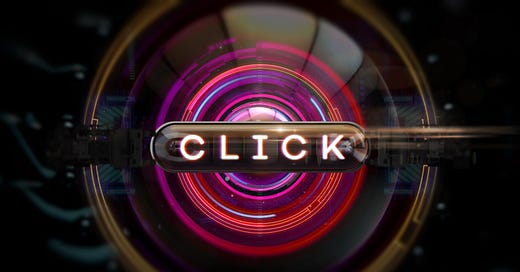



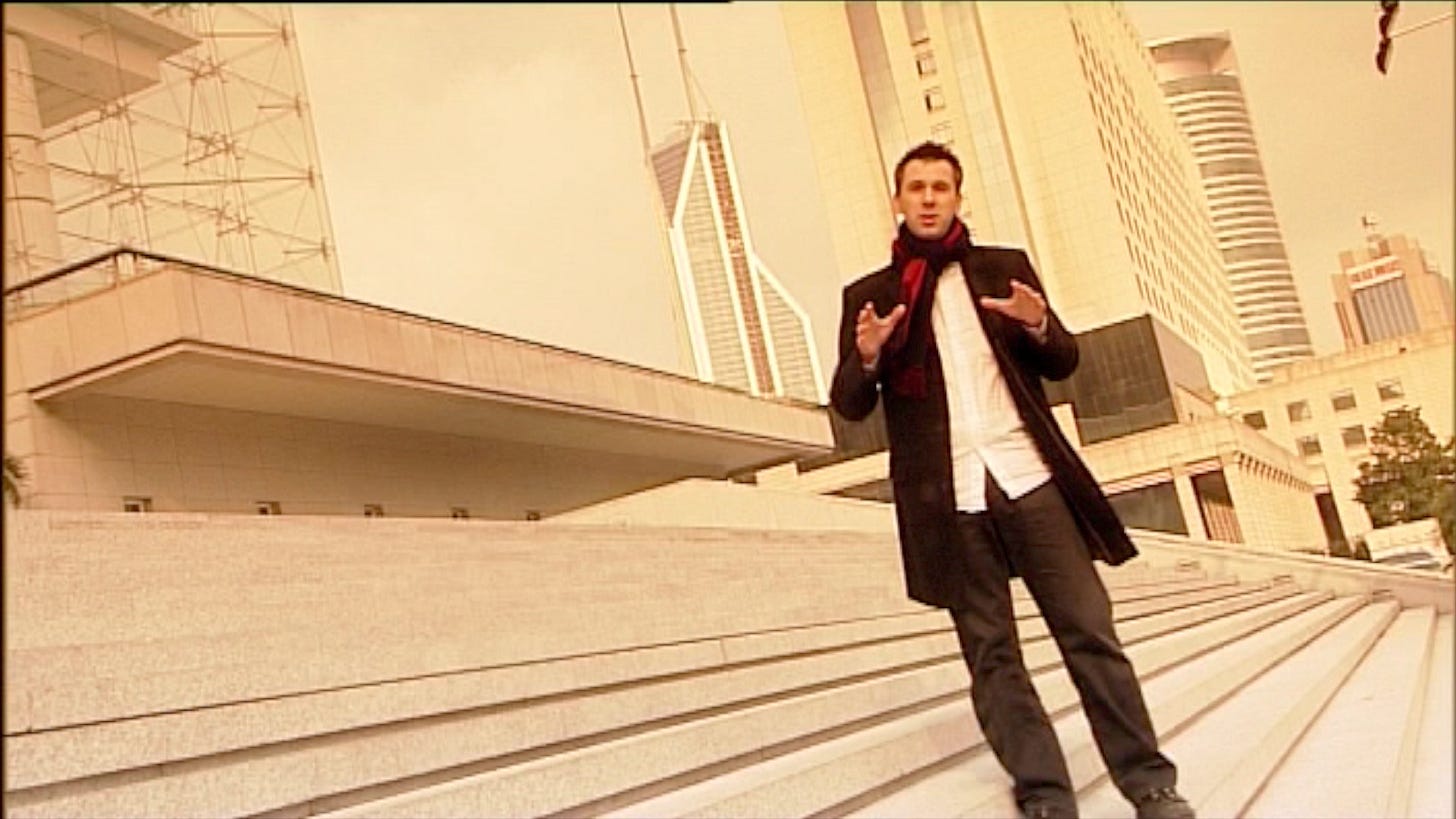
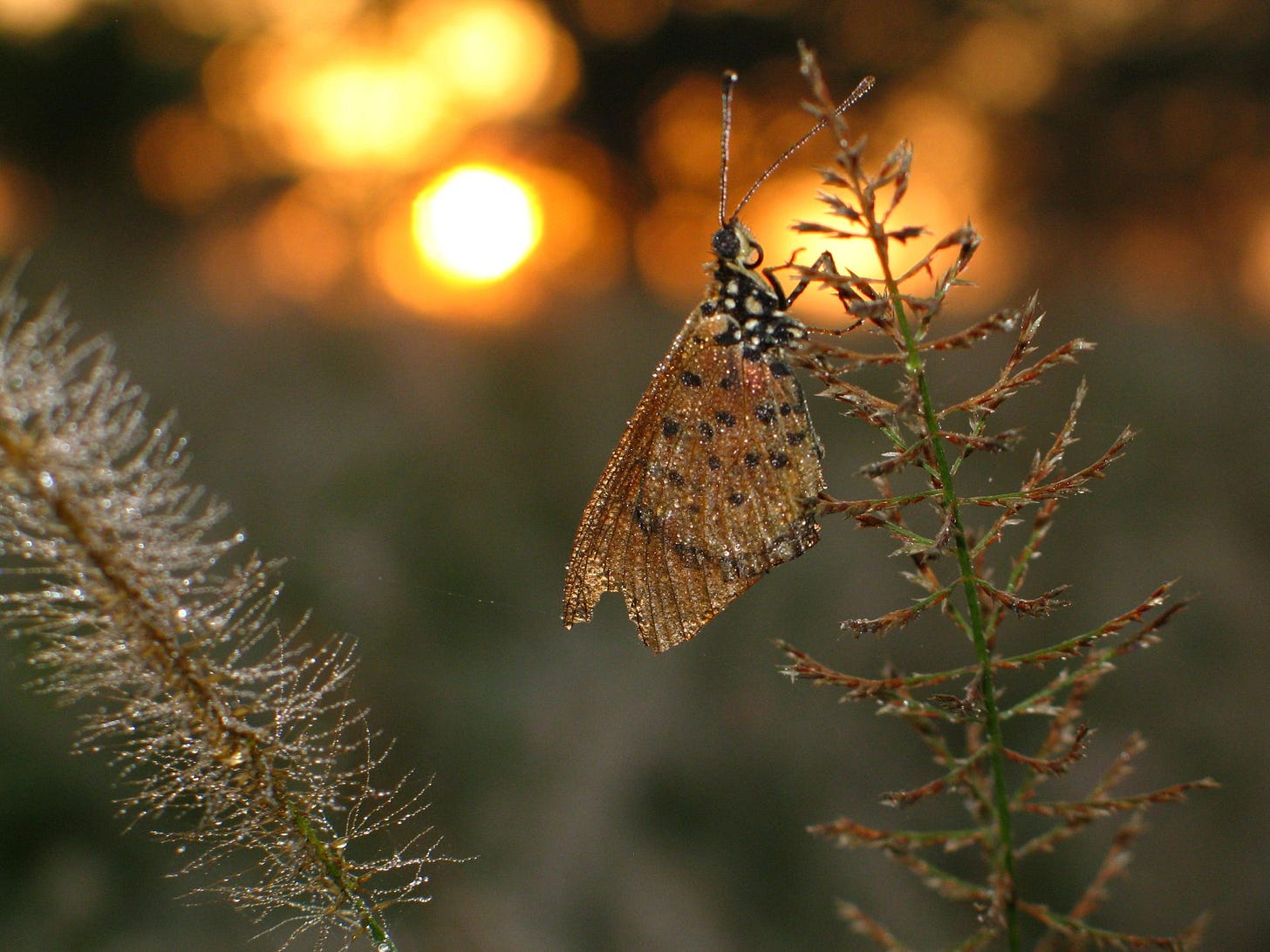

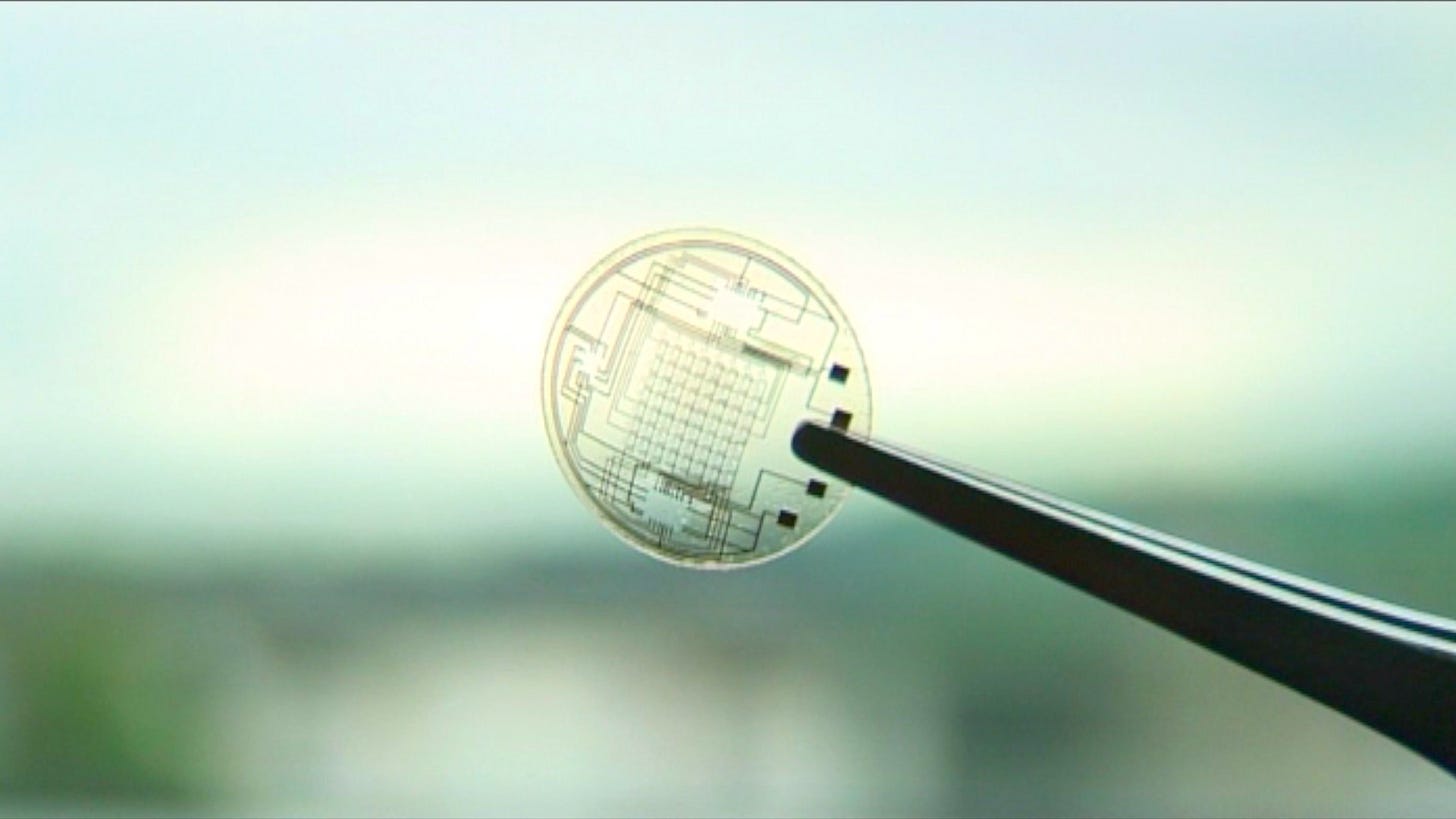
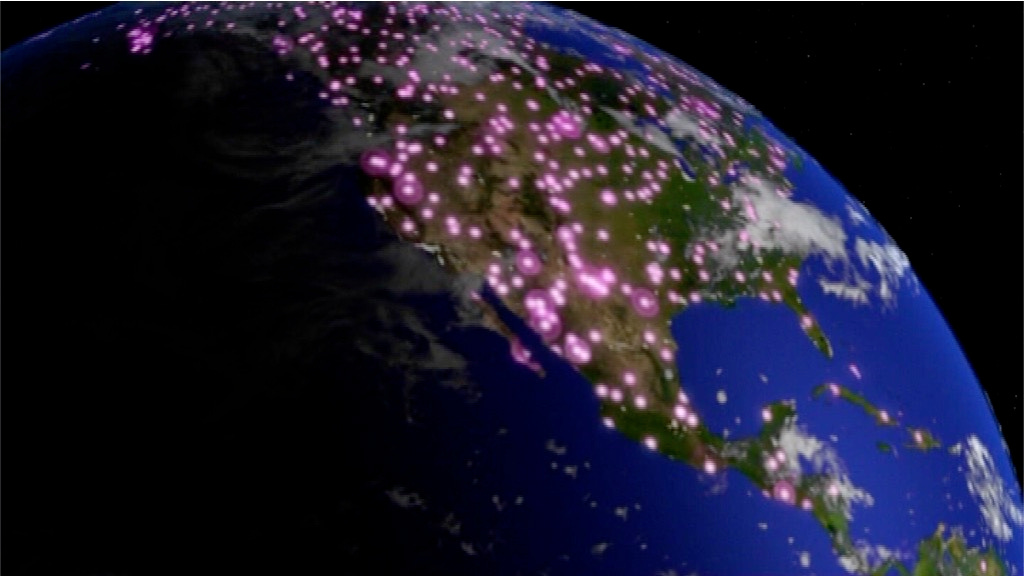
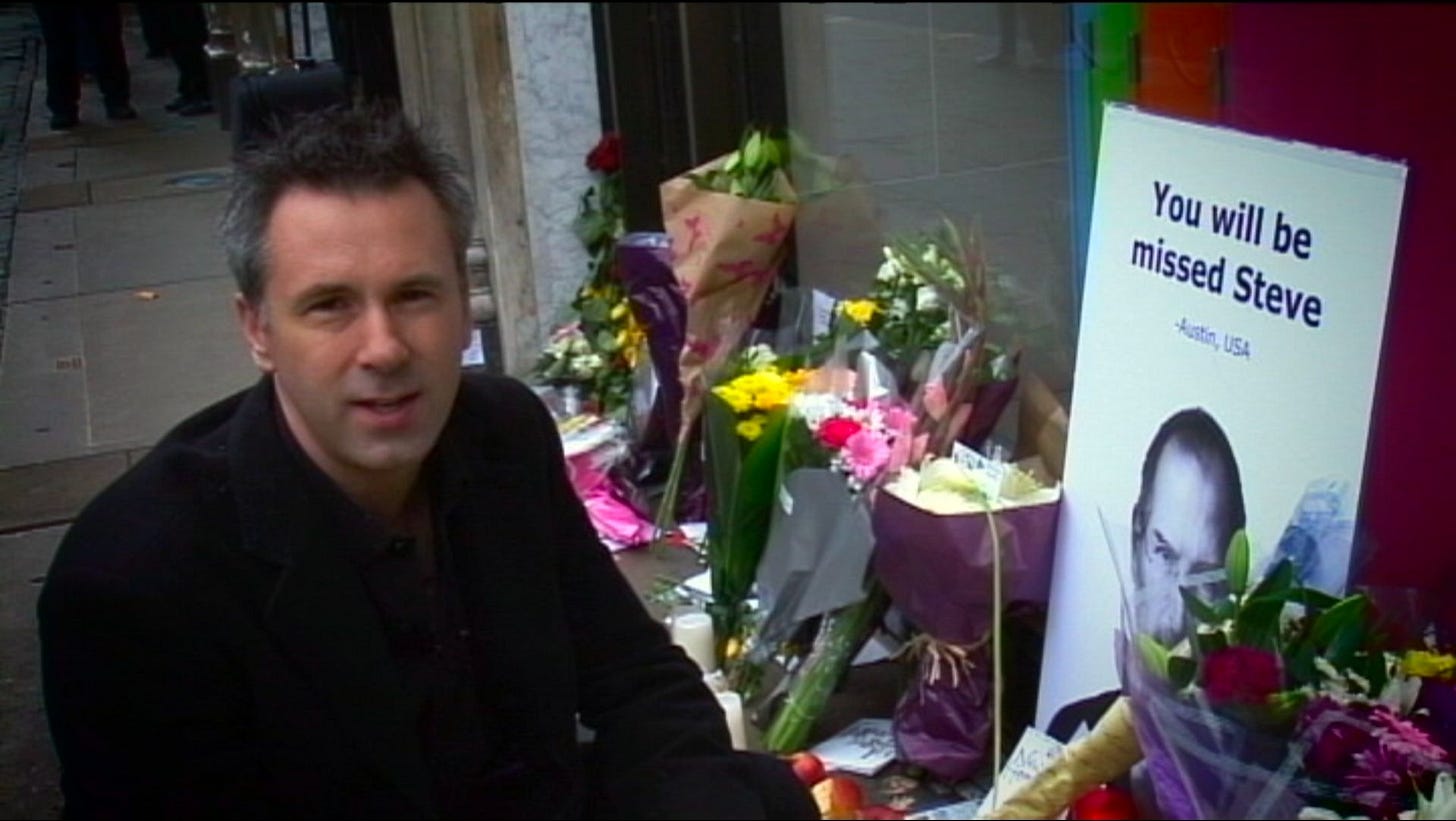
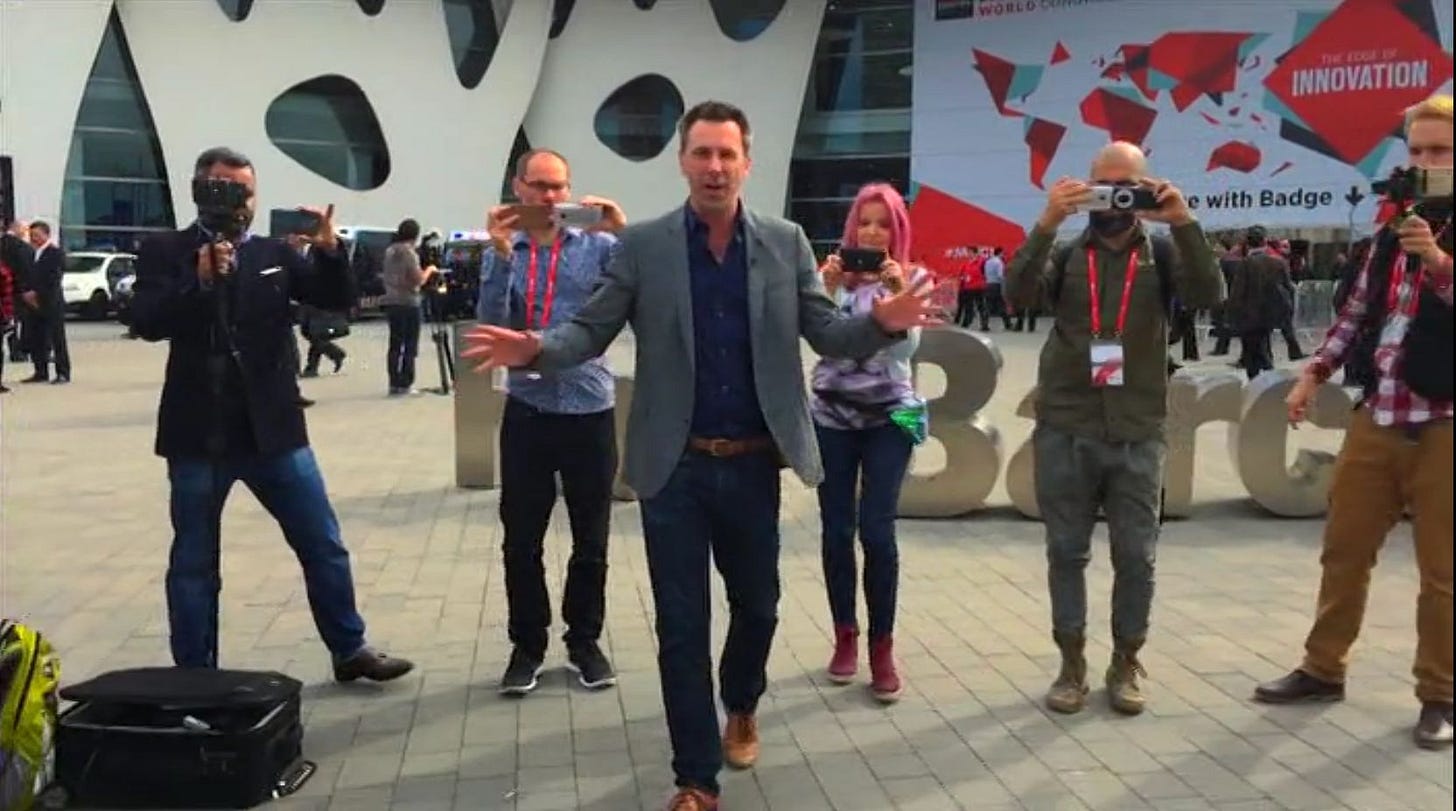
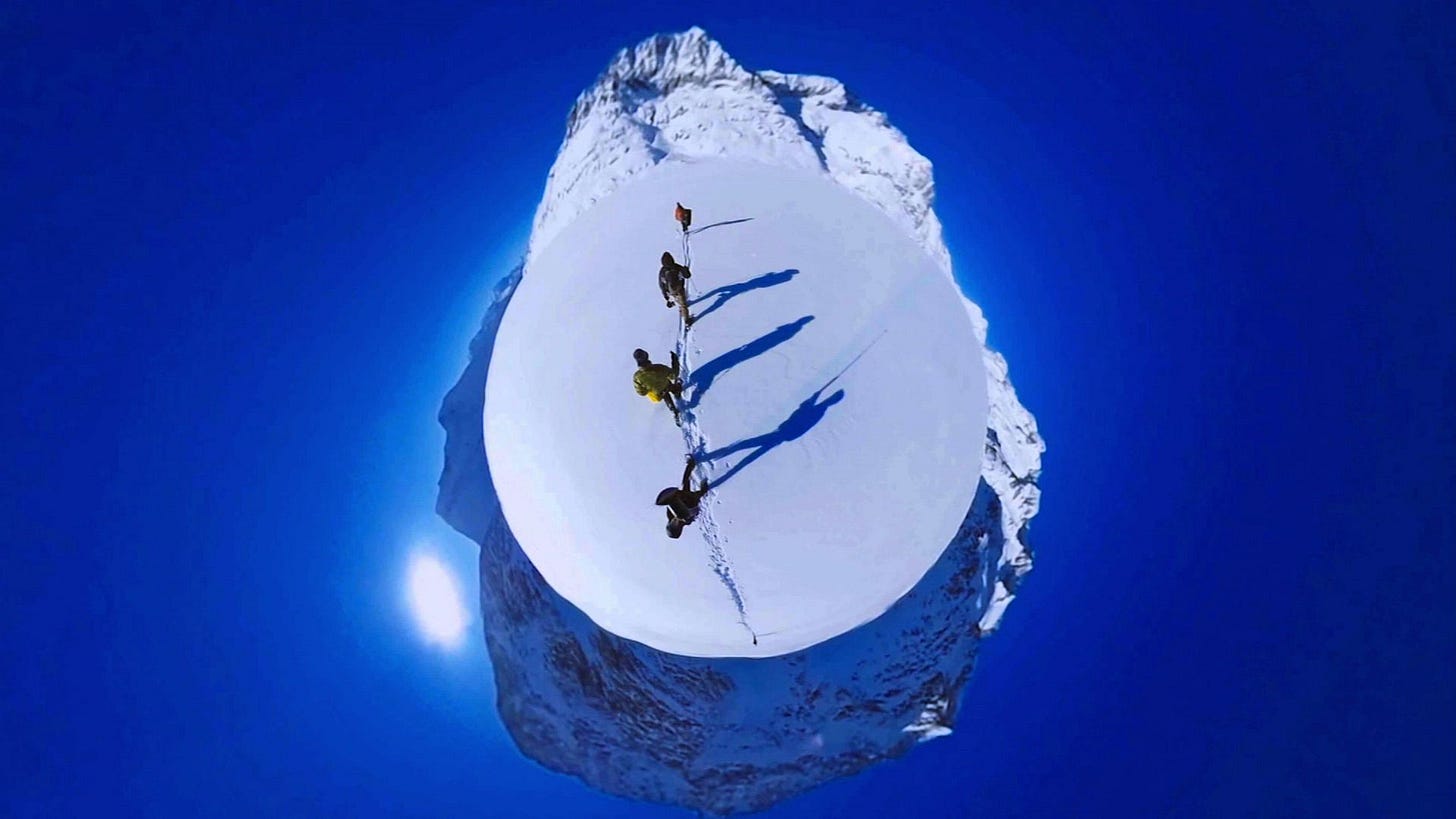
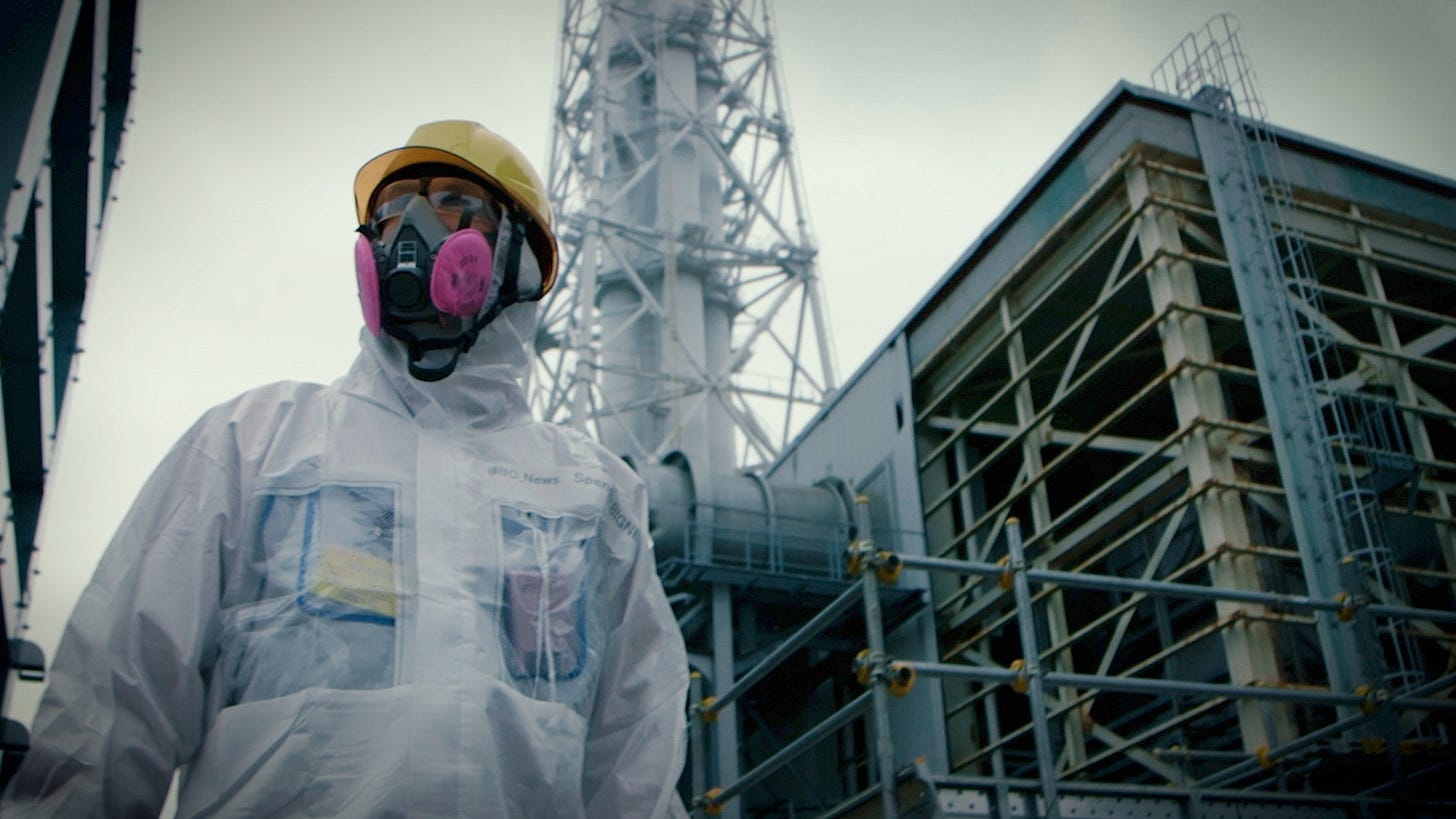
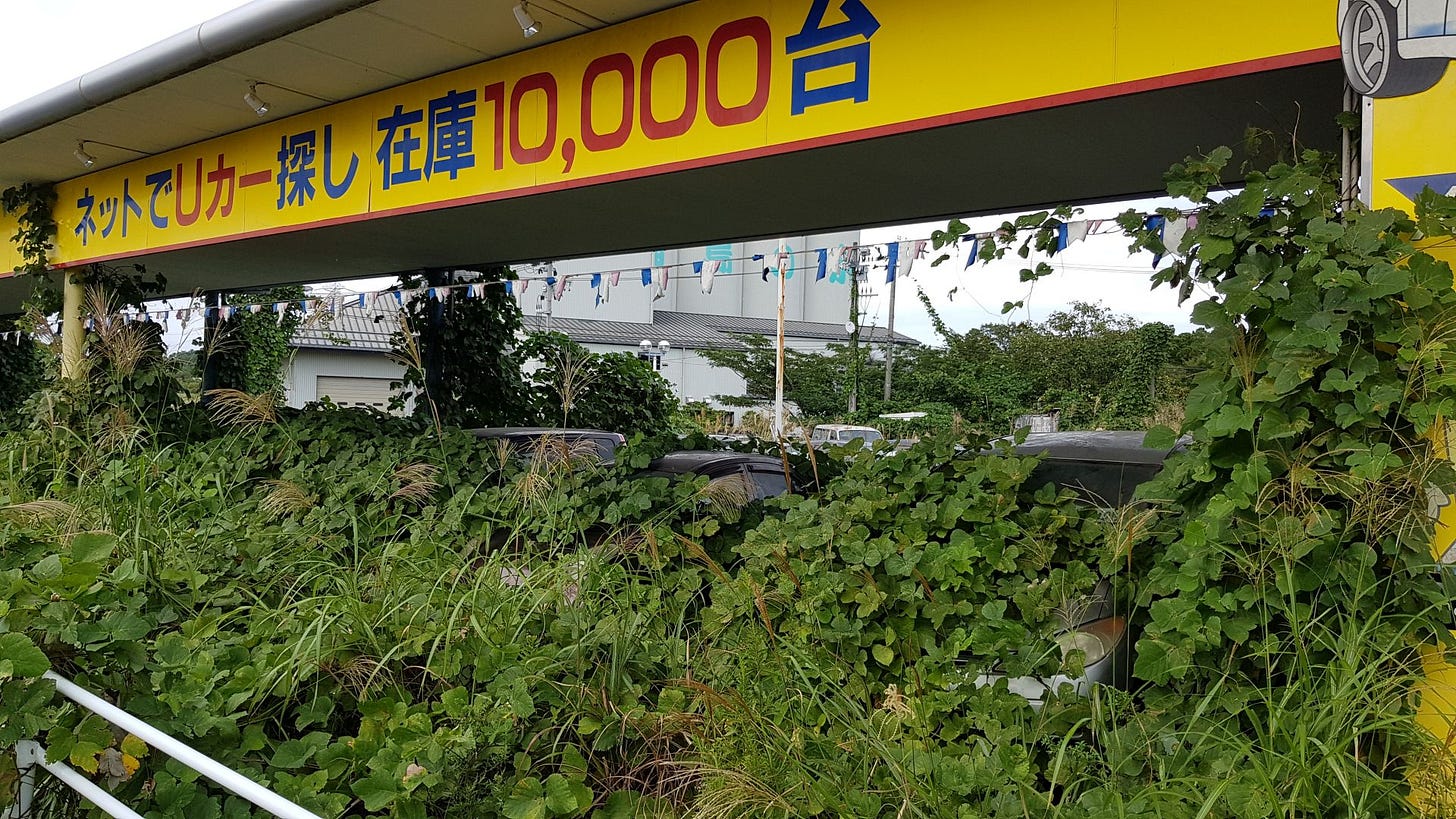
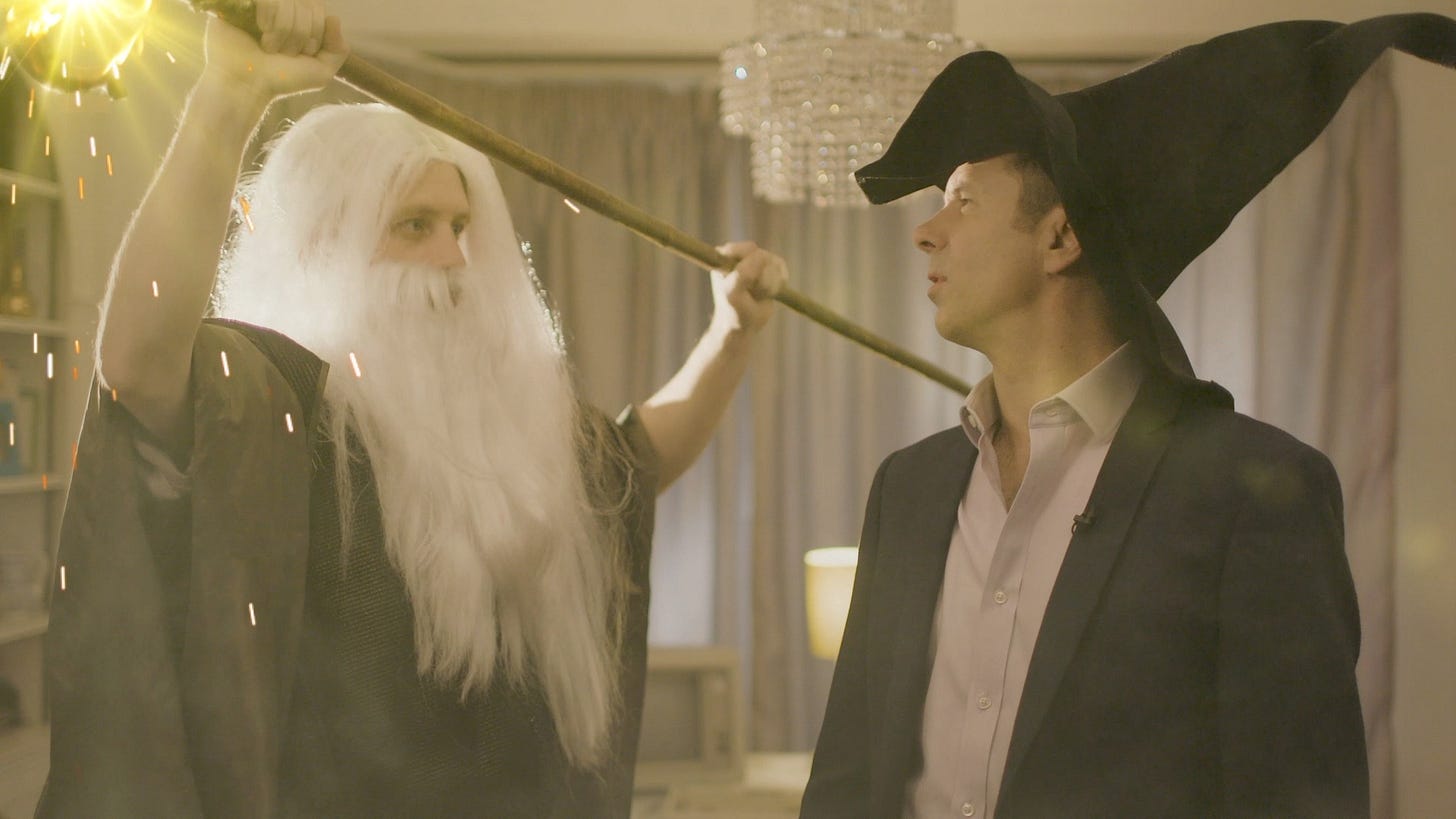
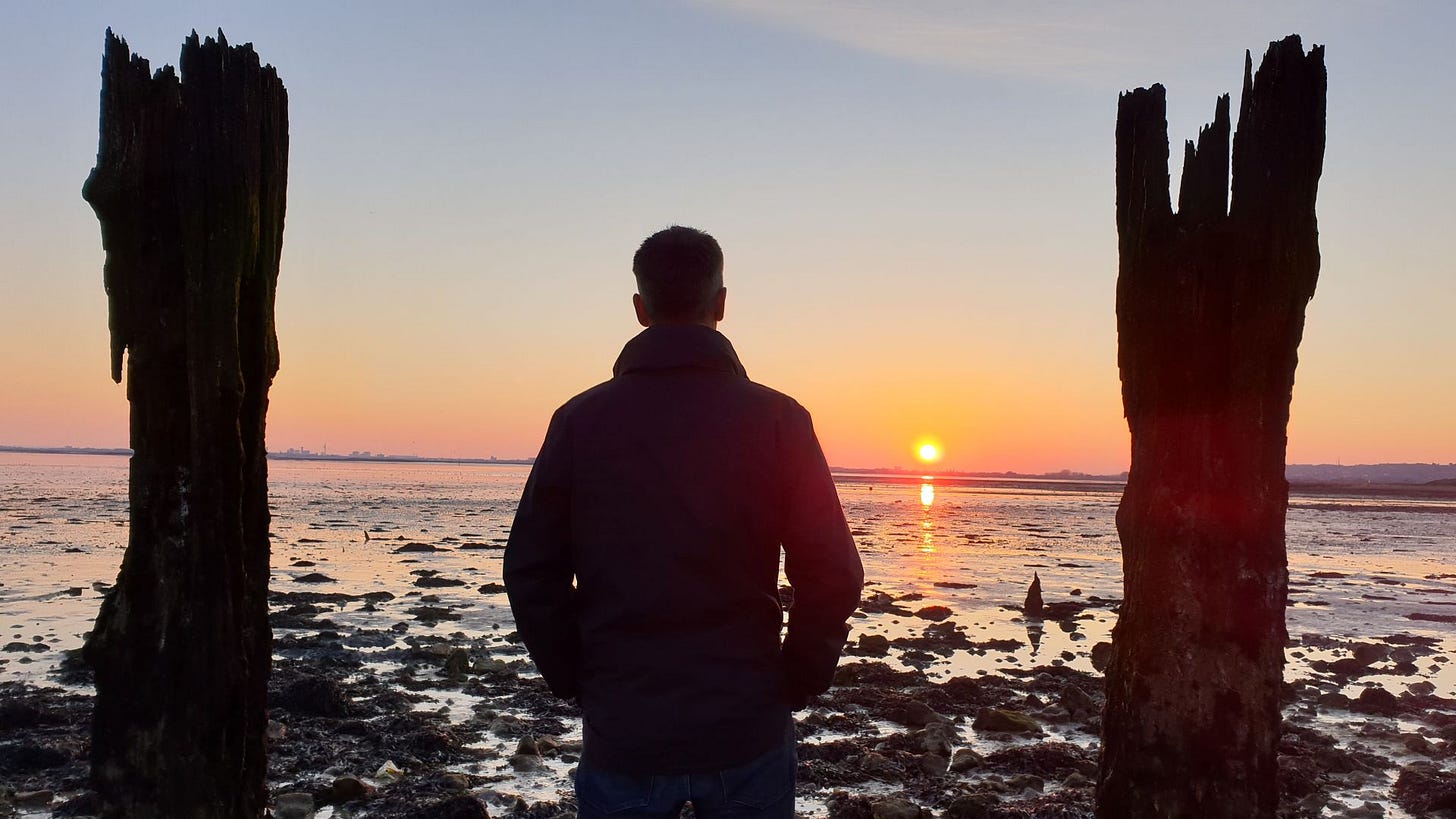
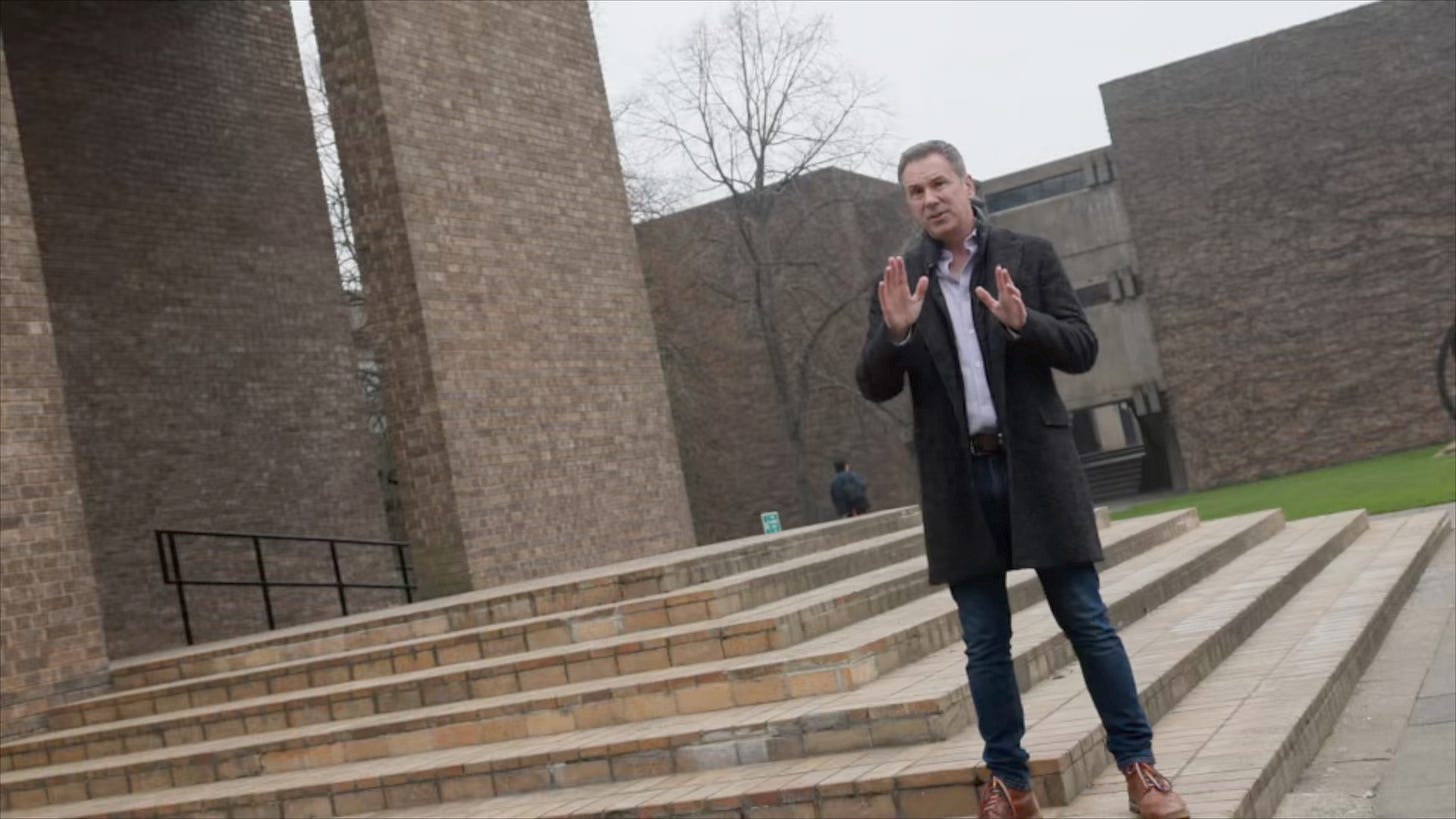
I really hope that somewhere on linear TV ( until its inevitable death ) someone continues to craft a programme with as much love, care and enthusiasm as the team at Click.
It worries me that we are losing the one ability that linear TV is really good at - putting important things in front of an audience that weren’t expecting it, stories that they wouldn’t have chosen to watch or engage with. That moment when you’re sat having a coffee, TV on in the background and you look up because there’s a man talking to a robot, naturally.
“For you” pages don’t do that so well. Algorithms all seem to have their own agenda - steering us to what they’ve been instructed to push and hiding so much more. They don’t “challenge” the viewer to take a new direction.
Good luck with your training, I’m sure you’ll be fine.
(something in my eye)